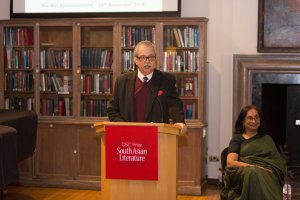(New Delhi, Feb 23, 2023) 2022 Nobel Prize winner Annie Ernaux will be on her maiden visit to India this week as part of a delegation of authors from France, which is the Guest of Honour at the New Delhi World Book Fair beginning Saturday.
“We were so honoured when Annie Ernaux accepted our invitation, especially when we got to know she has said yes to only two invitations abroad after receiving the Nobel Prize in Literature. At age 82, it will be her first visit to India,” said Julia Trouilloud, Attache for Books at the French Institute in India.
Ernaux, who was awarded the Nobel for the “courage and clinical acuity with which she uncovers the roots, estrangements and collective restraints of personal memory”, will deliver a special lecture at the book fair venue Pragati Maidan on Saturday and also address a conference at the Shri Ram Centre the next day.
The 16-member French delegation also has several other popular contemporary writers across literary genres, including adult fiction, non-fiction, young adult fiction, children’s books and graphic novels.
Over 10 French publishers will meet their Indian counterparts to learn about the Indian publishing markets, and exchange rights between the two countries.
Representatives from the French publishing industry bureau (Bureau international de l’edition francaise and Syndicat national de l’edition), the Institut francais en Inde, and the French Ministry of Foreign Affairs will also be present.
According to Emmanuel Lebrun-Damiens, Counsellor for Education, Science & Culture at the French Embassy in India, “We will discuss broader perspectives about the place of literature in our cultural cooperation worldwide, also in the bilateral relationship between France and India. A little bit about what the book market represents in France.”
Trouilloud said Indo-French literary ties are stronger than ever, with an increasing number of translations in both directions.
“French graphic novels for adults and illustrated books for children are attracting the attention of Indian publishers more and more so we will have a special focus on these two genres. Visitors to the French pavilion will have the experience of a typical Parisian bookstore-cum-cafe, stunningly illustrated by graphic artist Simon Lamouret,” she said.
India was the Country of Honour at the Festival du Livre de Paris in France in April 2022. The 31st edition of the New Delhi World Book Fair will run till March 5.
Besides their participation in round-tables and special events at the book fair, the French authors will give lectures and workshops in major universities, bookstores, and other cultural institutions such as the Alliance francaise de Delhi.
After Delhi, each one of them will visit other Indian cities, with the support of the Alliance francaise network present in 15 cities across the country, officials said.



